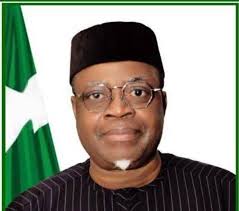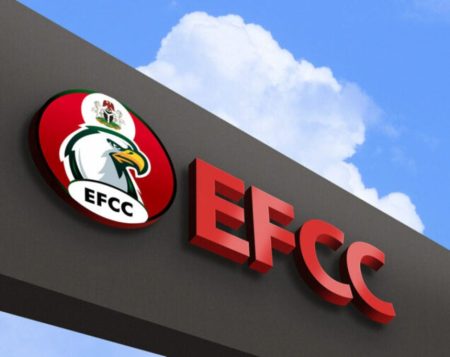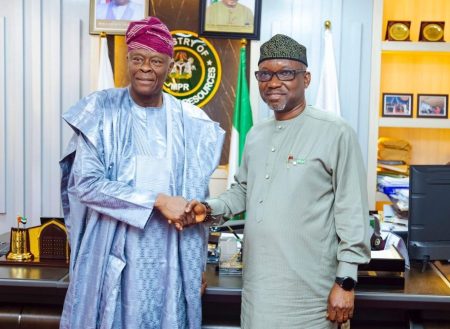
*FG soon to announce decision of payment of billions owed Discos by MDAs
Oscarline Onwuemenyi
30 September 2016, Sweetcrude, Abuja — The Bank of Industry (BOI) and the United Nations Development Programme (UNDP) have signed a partnership agreement to provide more communities across Nigeria with solar power.
The partnership is for the second round of solar power provision for rural communities across the country between the BOI, which is the implementing agency on behalf of the federal government, and the UNDP.
At the signing ceremony held in Abuja yesterday, the Managing Director of the BOI, Mr. Waheed Olagunju said the six communities in which solar power projects had been carried out are enjoying stable power supply.
Olagunju said, “This commenced in 2015 with a pilot phase in which the first set of low-cost, off-grid solar electrification projects were deployed in one community in each of the six geopolitical zones, in partnership with GVE Projects Limited and Arnergy Solar Limited.
“The pilot project involved the provision of long-term financing for the installation of micro-grid and stand-alone solar solutions in Bisanti community, Katcha LGA in Niger State, Idi-Ita/Onibambu community, Ife North LGA in Osun State, Kolwa community, Kaltungo LGA in Gombe State, Onono community, Anambra West LGA in Anambra State, Obayantor 1 community in Edo State and Charwa/Chakun communities, Makarfi LGA in Kaduna State. These projects were commissioned in record time between October 6, 2015, and May 24, 2016.
“The blend of BoI’s contribution in the sum of US$1.4 million as debt financing for the projects, with UNDP’s grant contribution of US$600,000 will provide the much-needed stimulus to scale up the projects in view of the attendant reduction in the cost of deployment and enhancement of its overall viability,” he explained.
He expatiated that BoI’s contribution and the UNDP grant would be deployed to provide solar energy solution in states where both BoI and UNDP had existing collaboration.
Olagunju said the pilot project scheme in Gombe, Niger, Osun, Anambra, Edo and Kaduna states, was aimed at giving rural communities the opportunity to take control of their energy generation and also pay for only the energy used.
He disclosed that plans were underway to replicate the project in other off-grid communities in Edo State, in collaboration with the state government as well as other parts of the country, working with the various state governments.
Olagunju stated that for Nigeria to meet up with its energy needs, it must diversify into the use of alternative sources as the country had some of the world’s most abundant and least exploited renewable energy sources, especially solar power.
He maintained that solar power could be utilized to provide the much-needed electricity for the nation’s rural communities, rather than waiting in vain for the national grid to get to these areas
He, however, said the Development Finance Institution’s (DFIs) medium term vision was to have about 100,000 homes installed with stand-alone solar home systems, pointing out that this move was essentially a programme aimed at poverty alleviation, reduction in rural-urban migration to foster rural economic development.
“We are all aware that power remains a major obstacle to growth in Nigeria, as inadequate and unreliable electricity undermines investment opportunity, economic growth, social and infrastructure developments,” he said.
He added that the central power generation, transmission and distribution system operational in the country could no longer deliver competitive, cheap and reliable electricity to remote customers on and off the national grid.
According to him, renewable energy sources, such as hydro, wind and solar, are growing in relevance and commercial adoption on a global scale, even as issues such as climate change and energy security have taken the front burner globally.
The UNDP representative, Mandisa Mashologu, said the partnership was meant to scale up the solar power project and provide more communities access to cheap power.
Mashologu said the UNDP is satisfied with the success of the project and would to scale up the project.
Meanwhile, the Bureau of Public Enterprises (BPE) has told Kaduna Electric that the federal government may soon reveal its position on the debts owed the 11 Distribution companies (Discos) by the Ministries, Departments, and Agencies (MDAs).
Speaking during an inspection visit, the Deputy Director on Post Privatisation, Mallam Rabiu Abubakar Abba while responding to the challenges of the Disco said, “Very soon the government will come out with a position particularly on the debts owed Discos by MDAs as well as issues of liquidity bedeviling the sector.”
In his address, the Managing Director of the Disco, Engr. Garba Haruna said the whole process of privatization is to reduce losses and increase efficiency in the power sector. He noted that the agency is part of Kaduna Electric as the government owns 40 percent equity while BPE represents its interest on the Disco’s board.
The Deputy Director, Enterprises at BPE, Mr. John Olalekan Joseph tasked other Discos on deploying similar GPS technology saying it would bring down significantly then commercial losses of the firms.



